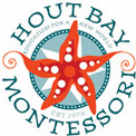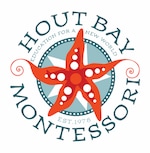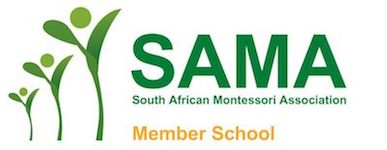Primary
Hout Bay Montessori has both a junior and senior primary class. The children in these intimate and nurturing environments are taught by passionate and competent teachers. The teachers work together to plan and deliver the very unique and exciting Montessori elementary curriculum, to encourage exploration and promote a love of learning. Curriculum standards adhere to the national standards set by the Department of Education.
The elementary program offers a continuum built on the preschool experience. The environment reflects a new stage of development and offers the following:
As in the preschool, the Montessori materials are a means to an end. They are intended to evoke the imagination, to aid abstraction, to generate a world view about the human task and purpose. The program is made up of stories that provide an inspiring overview as the organizing, integrating "Great Lessons." Great Lessons span the history of the universe from the big bang theory of the origin of the solar system, earth, and life forms to the emergence of human cultures and the rise of civilization.
We use six assessment tools in the primary environment. This provides us with a more accurate and useful understanding of your child’s progress – in all aspects of their being, not one:
The elementary program offers a continuum built on the preschool experience. The environment reflects a new stage of development and offers the following:
- Integration of the arts, sciences, geography, history, and language that evokes the imagination of the primary (elementary) child.
- Presentation of the formal scientific language of zoology, botany, anthropology, geography, geology, etc., exposing the child to accurate, organised information and respecting the child's intelligence and interests.
- The use of timelines, pictures, charts, and other visual aids to provide a linguistic and visual overview of the principles of each discipline.
- Presentation of knowledge as part of a large-scale narrative that unfolds the origins of the earth, life, human communities, and modern history, always in the context of the wholeness of life.
- A mathematics curriculum presented with concrete materials that simultaneously reveal arithmetic, geometric, and algebraic correlations.
- Emphasis on open-ended research and in-depth study using primary and secondary sources (no textbooks or worksheets) as well as other materials.
As in the preschool, the Montessori materials are a means to an end. They are intended to evoke the imagination, to aid abstraction, to generate a world view about the human task and purpose. The program is made up of stories that provide an inspiring overview as the organizing, integrating "Great Lessons." Great Lessons span the history of the universe from the big bang theory of the origin of the solar system, earth, and life forms to the emergence of human cultures and the rise of civilization.
We use six assessment tools in the primary environment. This provides us with a more accurate and useful understanding of your child’s progress – in all aspects of their being, not one:
- The directress has a short-term plan of presentations she needs to do with the child in each area of the class (individual curriculum). As with pre-school, all learning takes place one on one or in small groups. The directress is well versed in the child’s abilities, their interests, their weaknesses, their voids, their needs and their progress.
- The child’s own body of work stored in a portfolio. The portfolio includes the child’s own work; samples of written work, creative writing, drawing, art projects, and photographs of the child’s work.
- Observation notes are written daily and stored with the child’s individual curriculum. Apart from observing academic progress, of equal importance are levels of independence, confidence, self-discipline, intrinsic motivation, ability to handle external authority AND academic achievement.
- We help the child to monitor his own freely chosen work by asking him to keep track of what he does throughout the day. All of his work and activities should be recorded in his daily journal. The journal is a device by which the child can monitor and measure his own work and activities and assume responsibility for them.
- The directress and child meet once a week. During these weekly meetings, the teacher and child study the child’s daily journal together, with the goal of facilitating the child to evaluate his own productivity and quality of his work. It is a time for them both to see if the child has been accountable to the freedom extended to him. The directress will guide the child to create for himself solutions and suggestions for his improvement, rather than imposing on him a plan and a conclusion. This allows him to take the responsibility for his work and his improvement.
- We use the Western Cape Education Department’s learning outcomes to assess how our children are doing (in literacy, numeracy and culture) with the benchmark of government schooling.
Our Daily Lunches
The children at Hout Bay Montessori look so forward to their lunchtime meal, which is prepared with care by our kitchen staff. Lunches are enjoyed in each class in a homely way, as a family, with the children dishing up and washing their dishes afterwards. They love the home cooked warm dishes and are delighted by the ‘rainbow foods’ (fruit and vegetables) that accompany each meal.
We only use free range meats, chicken and eggs, and organic ingredients as far as possible.
We do cater for special dietary needs. The cost of each lunch is R25.
Please click on this link to see our menu; Hout Bay Montessori Lunch Menu
We only use free range meats, chicken and eggs, and organic ingredients as far as possible.
We do cater for special dietary needs. The cost of each lunch is R25.
Please click on this link to see our menu; Hout Bay Montessori Lunch Menu
|
The SAMA website has been created especially for the members of the Association but also for the general Montessori public. Click here to find out more.
|


